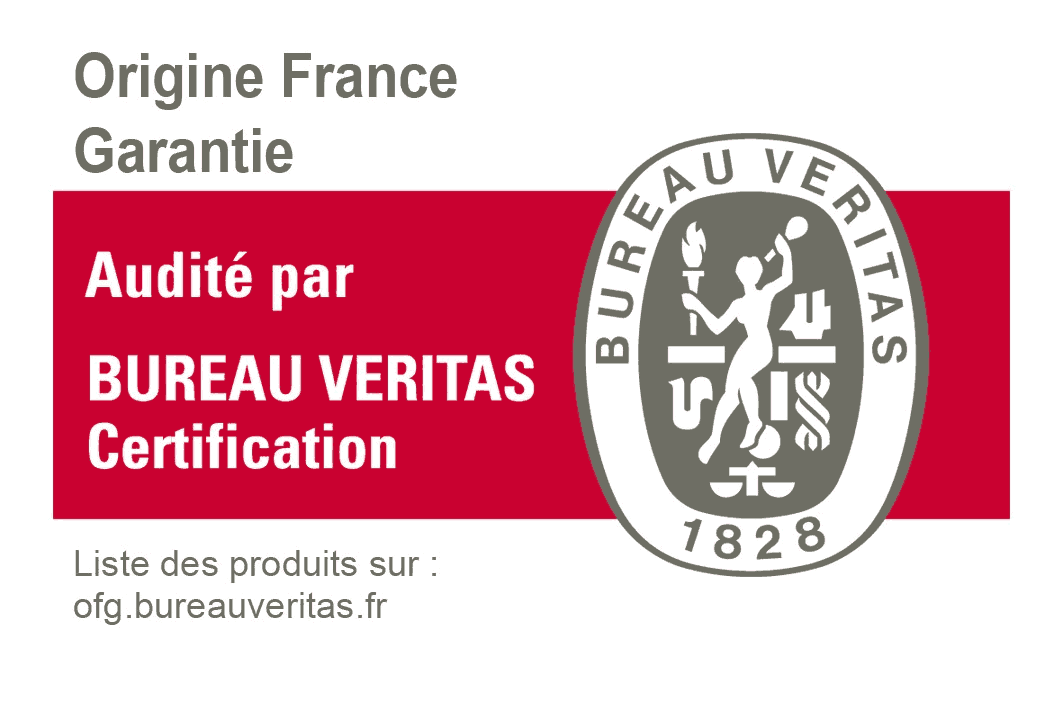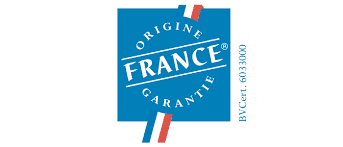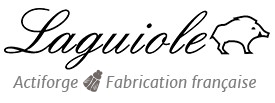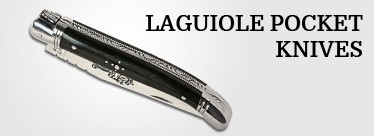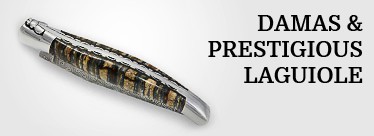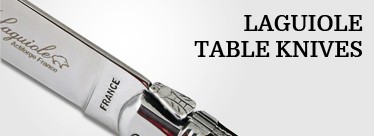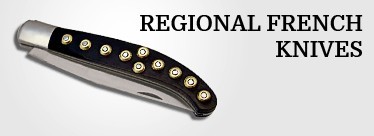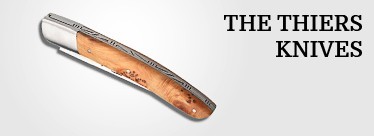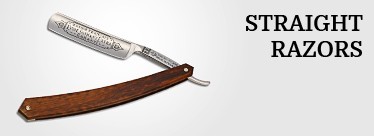- History
- Technical Questions
- To know a Laguiole
- Laguiole upper parts details
- The bladestop
- From steel bar to knife
- Closing systems for pocket knives
- How to sharpen your knife ?
- Sharpening stones
- Unkeep of folding knives
- Upkeep of your kitchen knife
- Cutlers adresses
- Stainless steel and carbon knife
- The art of shaving with the straight razor
- Upkeep of straight razor
- Materials
The legal protection of the Laguiole knife

Why couldn't we protect the Laguiole knife ?
At the beginning of the 20th century, France created the AOC (Appellations d'Origines Contrôlées, or controlled designations of origin) in order to protect agricultural goods produced in France.
In 1992, Europe implemented the PDOs (Protected Designation of origin) which replaced the AOC. But such protective measures still did not apply to crafted goods.
Why exclude them ? Others countries outside of the EU protected their cultural heritage from globalization, such as Peru which protected its Chulucanas ceramics with a Designation of Origin.
France had to do something. The Hamon Act of March 17th 2014 created the IGPIA (the Protected Geographical Indications for Industrial and Crafted Goods).
PGIs protect craftsmen against brands. For instance, a pre-existing brand will not be able to stop the creation of an IGPIA which uses a similar sign, unless the reputation or consumer-awareness of the product concerned by the IGPIA are exclusively attributable to said brand.
It seems therefore unlikely that the LAGUIOLE brand would be able to oppose the creation of a Laguiole Knife IGPIA, unless... the owner of the LAGUIOLE brand can prove that consumers know these knives exclusively thanks to him. Which is not the case.
Arnaud Montebourg remarked that once the Consumer Act of March 17th 2014 comes into force, ''the owner of an existing Geographical Indication will be able to oppose the registration of a trademark which would prejudice it.'' However, since there is no retroactive effect, it will not apply to Laguiole.

Geographical indications
A geographical indication is a sign affixed on products with a specific geographical origin and which possess qualities or a notoriety resulting from their location of origin.
AO and AOC (1900)
At first, the AOC could only be granted to wine products while the AO was designed for all sorts of products, natural or processed. However the AO did not meet with the anticipated success due to procedural difficulties and to the strict conditions required to get it. Only a few craft products such as the Puy lacework, the Vallauris earthenware or the Tahiti monoi were granted an AO. In 1990, the AOC, easier to obtain, came to include all agri-foodstuffs products, though it still didn't apply to crafted goods.
PDOs and PGIs (1992)
Protecting the origin of a product became a European concern. PDOs certify the geographical origin of a product whose quality or features are linked to said geographical environment, and whose production and processing all take place in the same area. Nowadays, PDOs have replaced AOCs except for wine products, for historical reasons. As for PGIs, they also identify the geographical origin of a product, but the main difference is that they only require one of the steps - production or processing - to take place within the area. IGPs are therefore less closely linked to their territories than PDOs.
European law, covering only agri-foodstuffs products, still didn't provide at that time any protection for crafted goods.
IGPIAs (2014)
IGPIAs aim to identify non agri-foodstuffs goods originating from a specific geographical area, whose quality, reputation, know-how or other features can be essentially attributed to said geographical origin and whose production or processing take place in the geographical area under consideration.
IGP (2022)
The INPI granted the IG Auvergne/Aubrac to the Laguiole knife on September 23, 2022
The INPI –National Institute of Industrial Property- is an independent body whose function is to protect the rights to industrial property titles, in order to prevent counterfeiting and to protect the consumer.
The Laguiole knife had until then no official protection.
The Association Couteau Laguiole Auvergne Aubrac has made a request to the INPI to obtain recognition of a common Auvergne-Aubrac Geographical Indication, in order to
- to protect the ancestral know-how of the Laguiole knife
- to fight against products manufactured outside this area
This GI was granted by the INPI on September 23, 2022
Only the Thiers basin and the Laguiole territory can produce Laguiole knives.
The GI is a guarantee of the authenticity of the Laguiole knife.
The GI is also a guarantee of the know-how of the Laguiole knife.
The Geographical Indication is a sign that can be used on Laguiole knives with characteristics or qualities that are linked to this Auvergne/Aubrac origin.
Only knives that strictly meet the specifications filed with the INPI can claim it.
An independent inspection body periodically checks the manufacture of cutlers using the GI.
French Origin Certified
We did not wait for the IGPIAs to certify the authenticity of our knives.
Every year Veritas inspects our company to certify to our clients that our Laguiole knives are well and truly made in France, in Thiers. That is how we obtained the French Origin Certified label.
